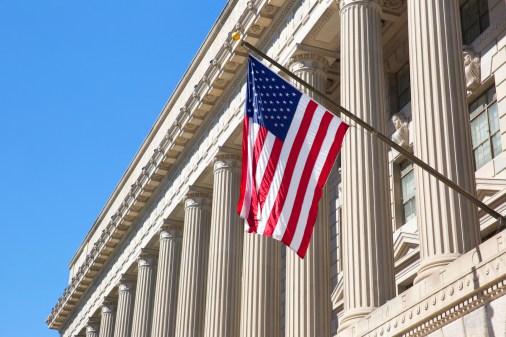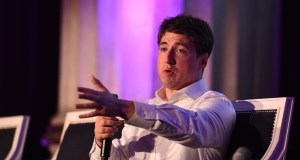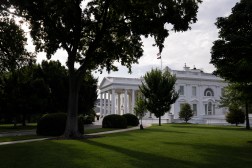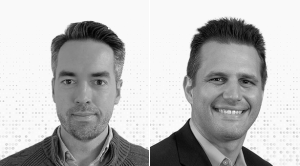President Obama delivered remarks at the international Open Government Partnership conference in New York City today, saying “this is how progress will be achieved in the 21st century — meeting global challenges through global cooperation, across all levels of society.”
Obama joined leaders of OGP’s 7 founding nations, including Brazil, Indonesia, Mexico, Norway, the Philippines, South Africa, the United Kingdom, and the United States to officially launch the initiative.
As part of the meeting, each country released its own national open government plan to “promote transparency, empower citizens, fight corruption, and harness the power of new technologies,” according to a fact sheet released by The White House (see also: U.S. Releases Open Government National Plan).
Full text
Remarks of President Barack Obama – As Prepared for Delivery Open Government Partnership Waldorf Astoria Hotel New York, New York Tuesday, September 20, 2011
Good afternoon everyone. And welcome to this inaugural event of a partnership that is already transforming how governments serve their citizens in the 21st century. One year ago, at the U.N. General Assembly, I stated a simple truth—that the strongest foundation for human progress lies in open economies, open societies, and open governments. And I challenged our countries to come back this year with specific commitments to promote transparency; to fight corruption; to energize civic engagement; and to leverage new technologies so we can strengthen the foundations of freedom in our own countries.
Today, we’re joined by nations and organizations from around the world that are answering this challenge. In this Open Government Partnership, I’m very pleased to be joined by leaders from the seven other founding nations of this initiative. I especially want to commend my friend President Rousseff for Brazil’s leadership in open government and for joining the United States as the first co-chairs of this effort.
We’re joined by nearly 40 other nations who have also embraced this challenge, with the goal of joining this partnership next year. And we’re joined by civil society organizations from around the world—groups that not only help hold governments accountable, but who partner with us, offer new ideas, and help us make better decisions. Put simply, our countries are stronger when we engage citizens beyond the halls of government. So I welcome our civil society representatives—not as spectators—but as equal partners in this initiative.
This is how progress will be achieved in the 21st century—meeting global challenges through global cooperation, across all levels of society. And this is exactly the kind of partnership we need now—as emerging democracies from Latin America to Africa to Asia are showing how innovations in open government can help make countries more prosperous and more just; as a new generation across the Middle East and North Africa asserts an old truth—that government’s exist for the benefit of their people; and as young people everywhere, from teeming cities to remote villages, are logging on, texting, Tweeting and demanding governments that that are just as fast, just as smart.
This is the moment we must meet; the expectations we must fulfill. And now, we see governments around the world meeting this challenge, including many represented here today. Countries from Mexico to Turkey to Liberia have passed laws guaranteeing citizens the right to information. From Chile to Kenya to the Philippines, civil society groups are giving citizens new tools to report corruption. From Tanzania to Indonesia—and as I saw first-hand during my visit to India—rural villagers are organizing, making their voices heard, and getting the public services they need.
Governments from Brazil to South Africa are putting more information online, helping people hold public officials accountable for how they spend taxpayer money. And in the United States, we’ve worked to make government more open and responsive than ever before. Promoting greater disclosure of government information. Empowering citizens with new ways to participate in their democracy. Releasing more data on health, safety and the environment, because information is power—helping people make informed decisions and entrepreneurs turn data into new products that create new jobs. We’re soliciting the best ideas from our people on how to make government work better. And around the world, we’re standing up the freedom to access information, including a free and open Internet.
Today, the eight founding nations of our partnership are going even further—agreeing to an Open Government Declaration rooted in several core principles. We pledge to be more transparent, at every level—because more information on government activities should be open, timely and freely available to our people. We pledge to engage more of our citizens in decision-making—because it makes government more effective and responsive. We pledge to implement the highest standards of integrity—because those in power must serve the people, not themselves. And we pledge to increase access to technology—because in this digital century, access to information is a right that’s universal.
Next, to put these principles into practice, every country that seeks to join this partnership will work with civil society groups to develop an action plan of specific commitments. Today, the United States is releasing our plan, which we’re posting on the White House website and at OpenGovPartnership.org. Among our commitments, we’re launching a new online tool—“We the People”—to allow Americans to directly petition the White House, and we’ll share that technology so any government in the world can enable its citizens to do the same. We’ll develop new tools —“smart disclosure”—so that the data we make public can help people make health care choices, help small businesses innovate, and help scientists achieve new breakthroughs.
We’ll work to reform and expand protections for whistleblowers who expose government waste, fraud and abuse. And we’re continuing our leadership of the global effort against corruption, by building on legislation that now requires oil, gas, and mining companies to disclose the payments that foreign governments demand of them. Today, I can announce that the United States will join the global initiative in which these industries, governments and civil society all work together for greater transparency so that taxpayers receive every dollar they’re due from the extraction of our natural resources.
These are just some of the steps we’re taking. And today is just the beginning of a partnership that will only grow—as Secretary Clinton leads our effort on behalf of the United States; as these nearly 40 nations develop their own commitments; as we share and learn from each other and build the next generation of tools to empower our citizens and serve them better.
That’s the purpose of open government. That’s the essence of democracy. And that’s the cause to which we’re committing ourselves today. And I thank all of you for joining us as we meet this challenge together. Thank you all very much.




